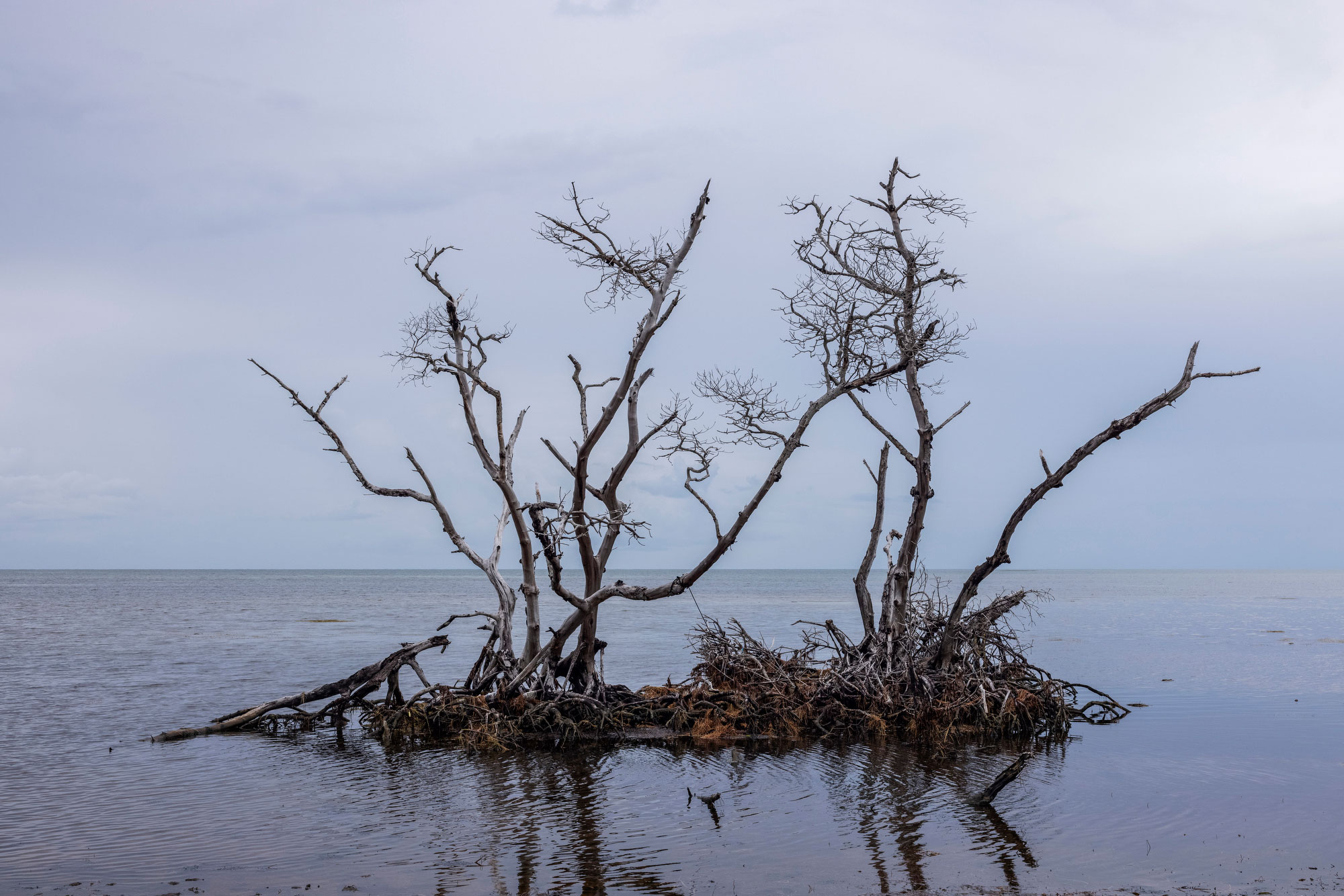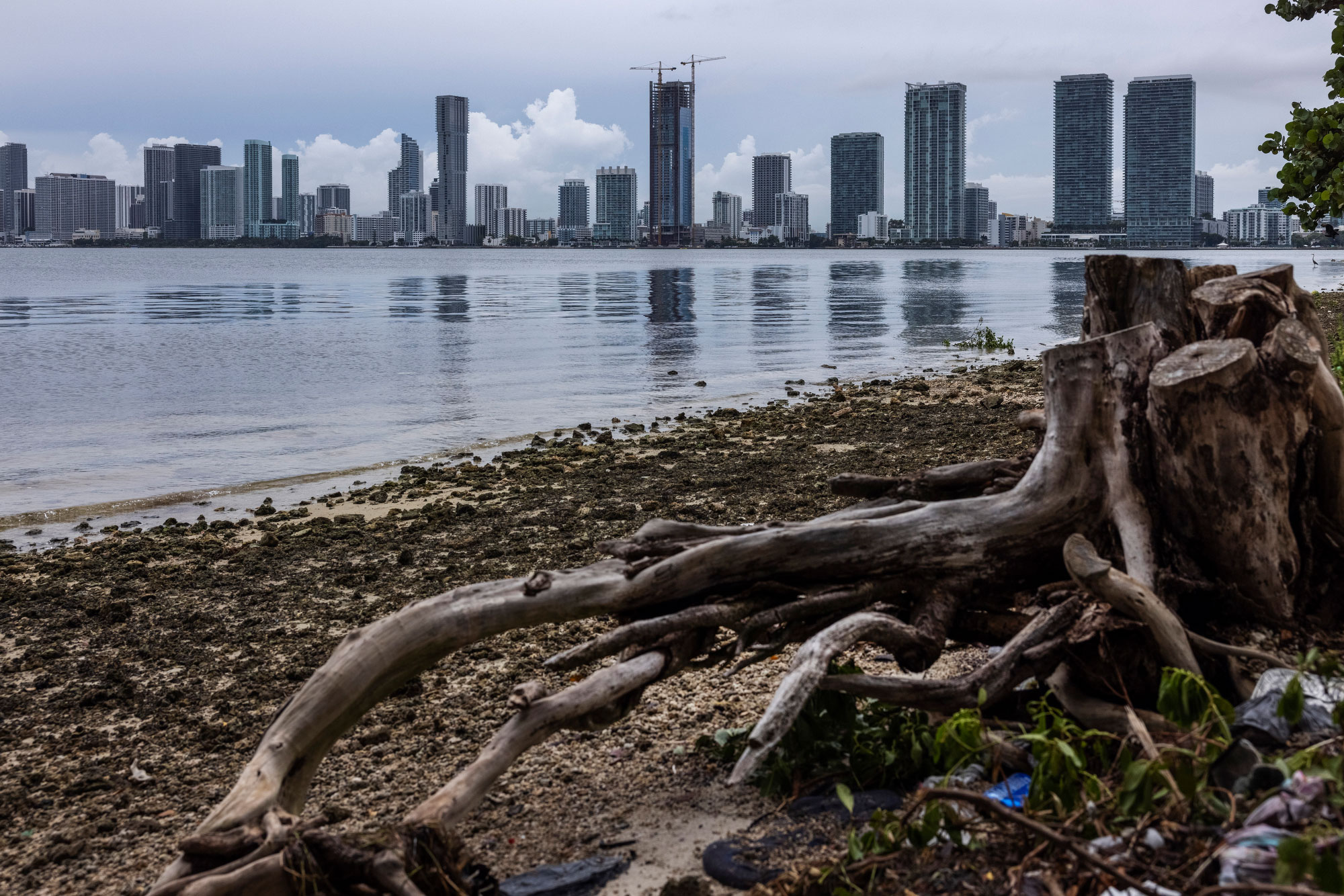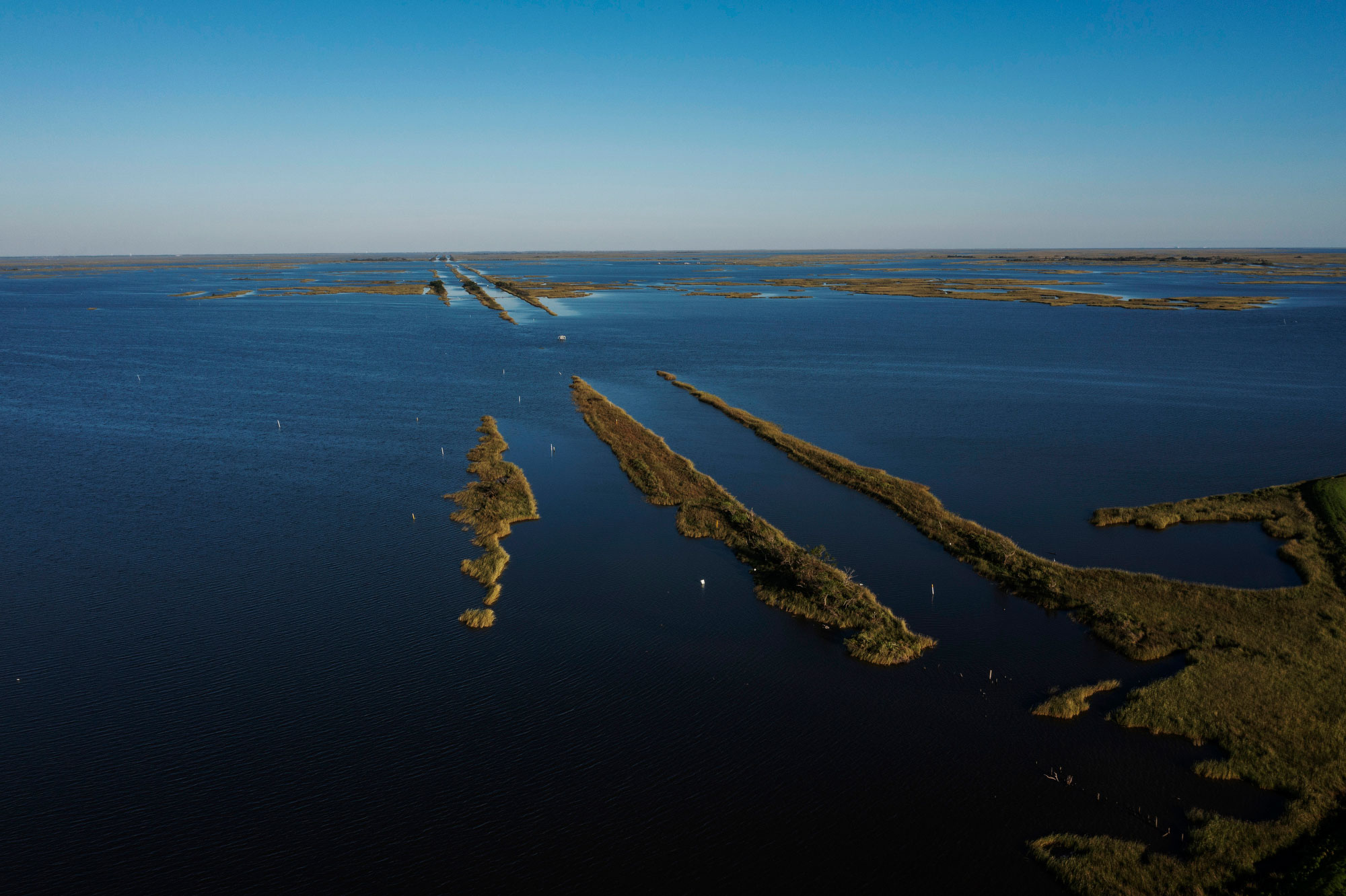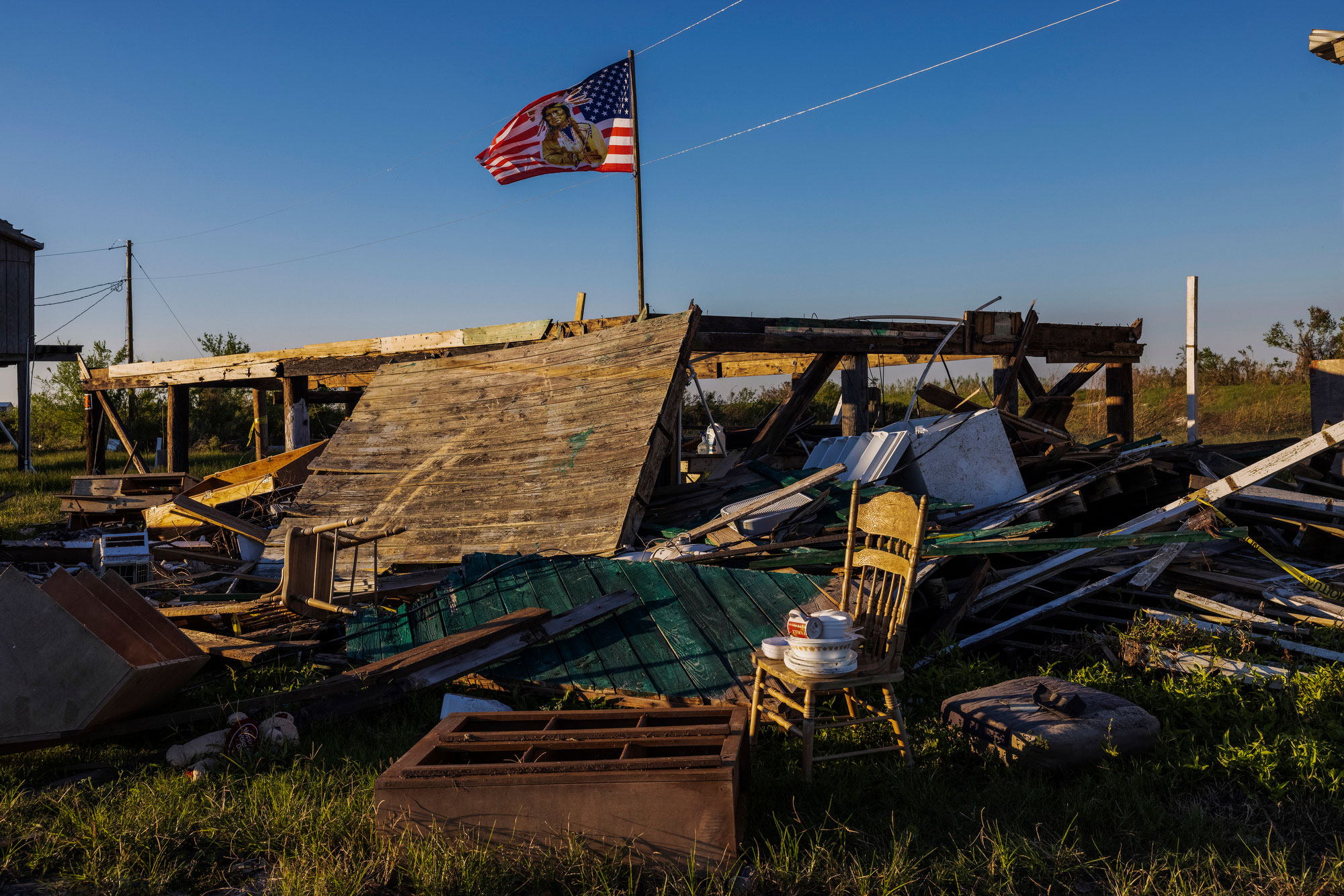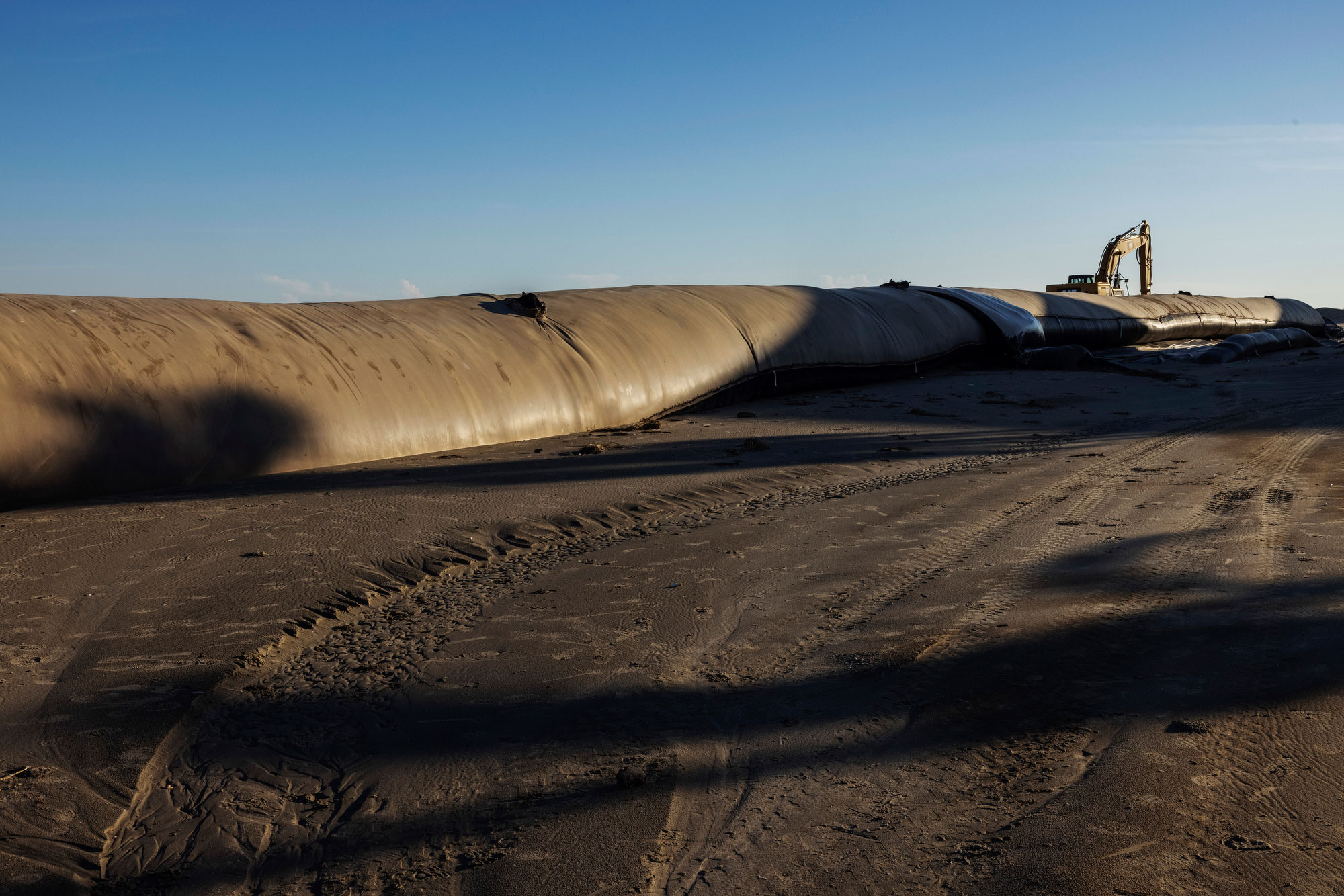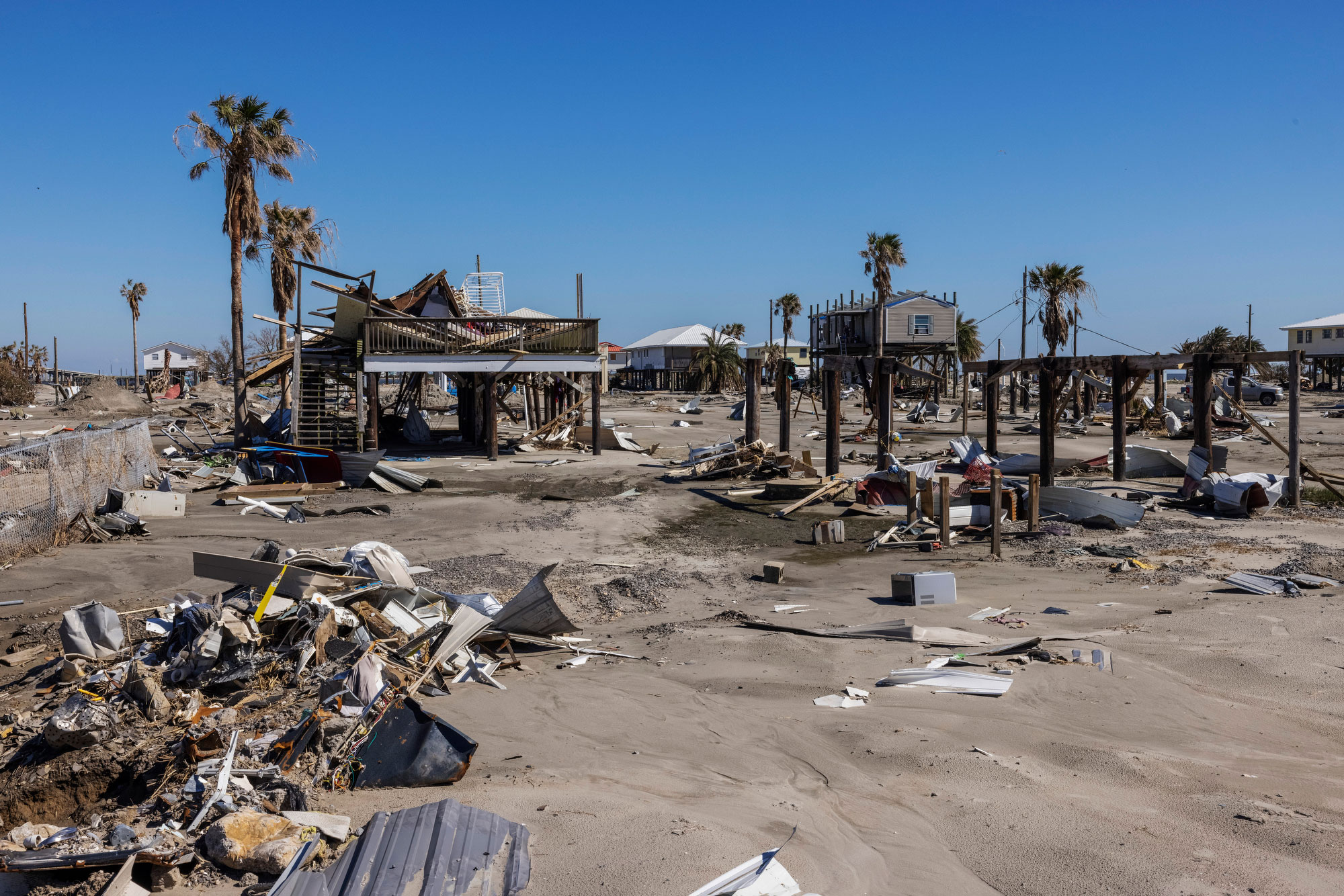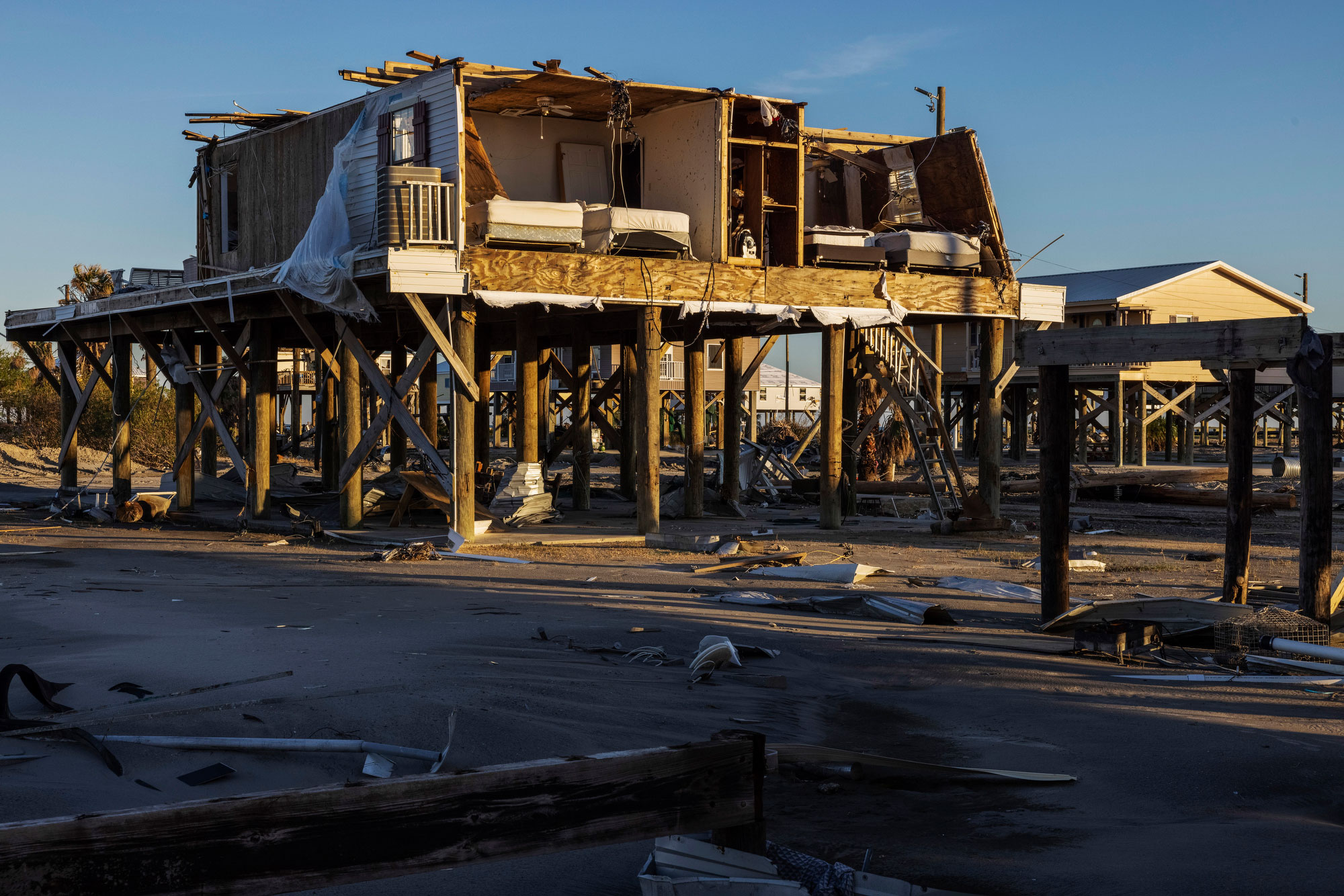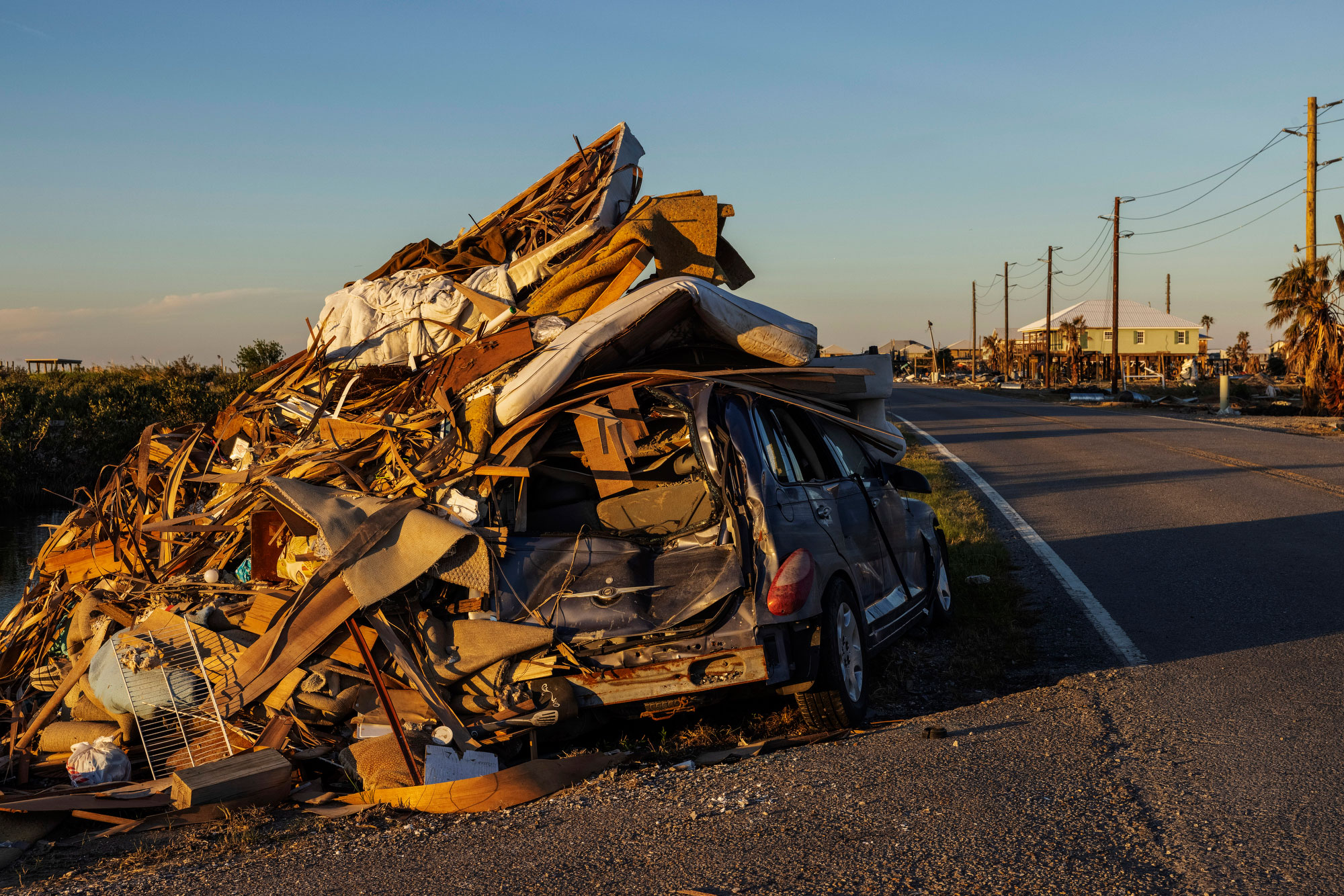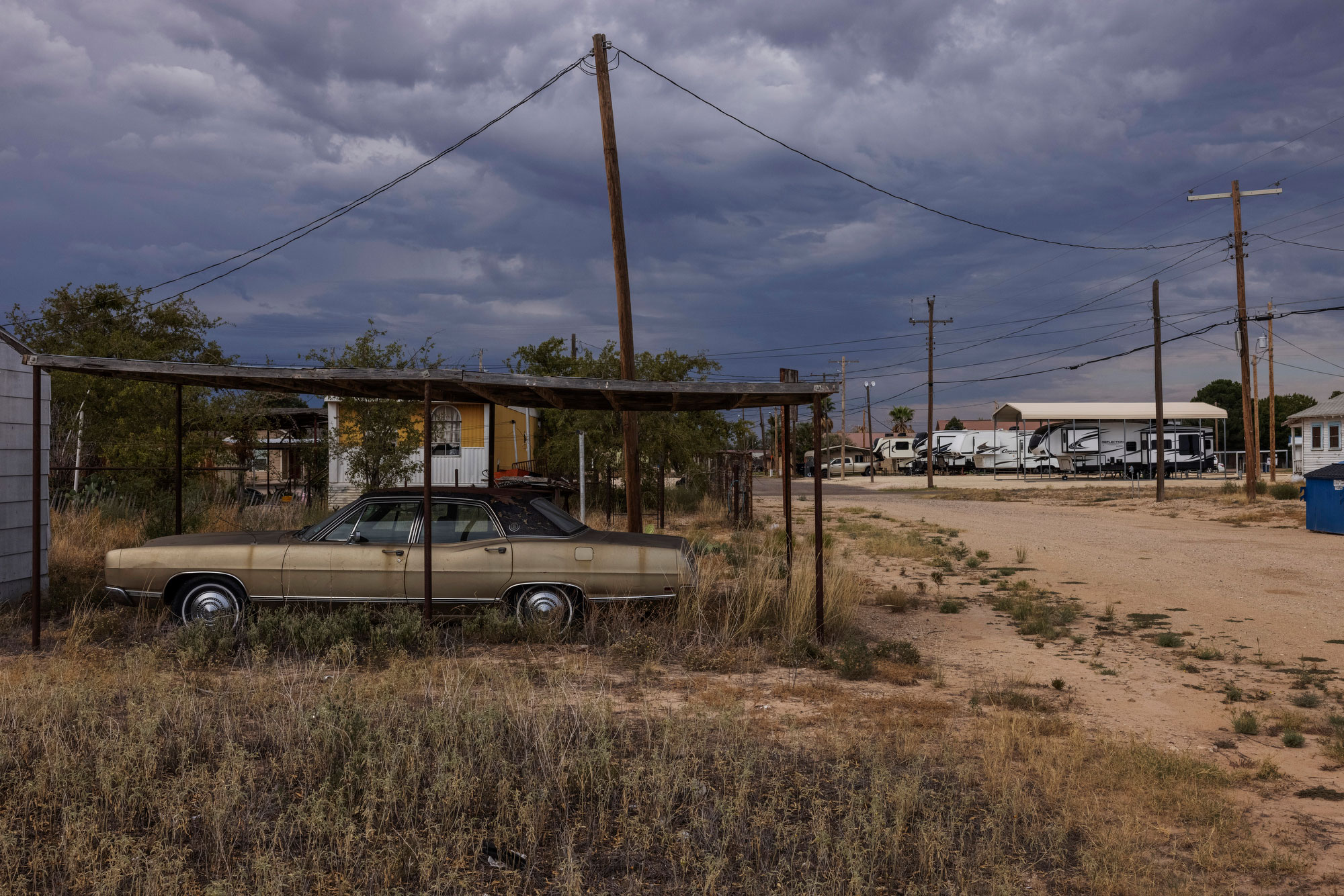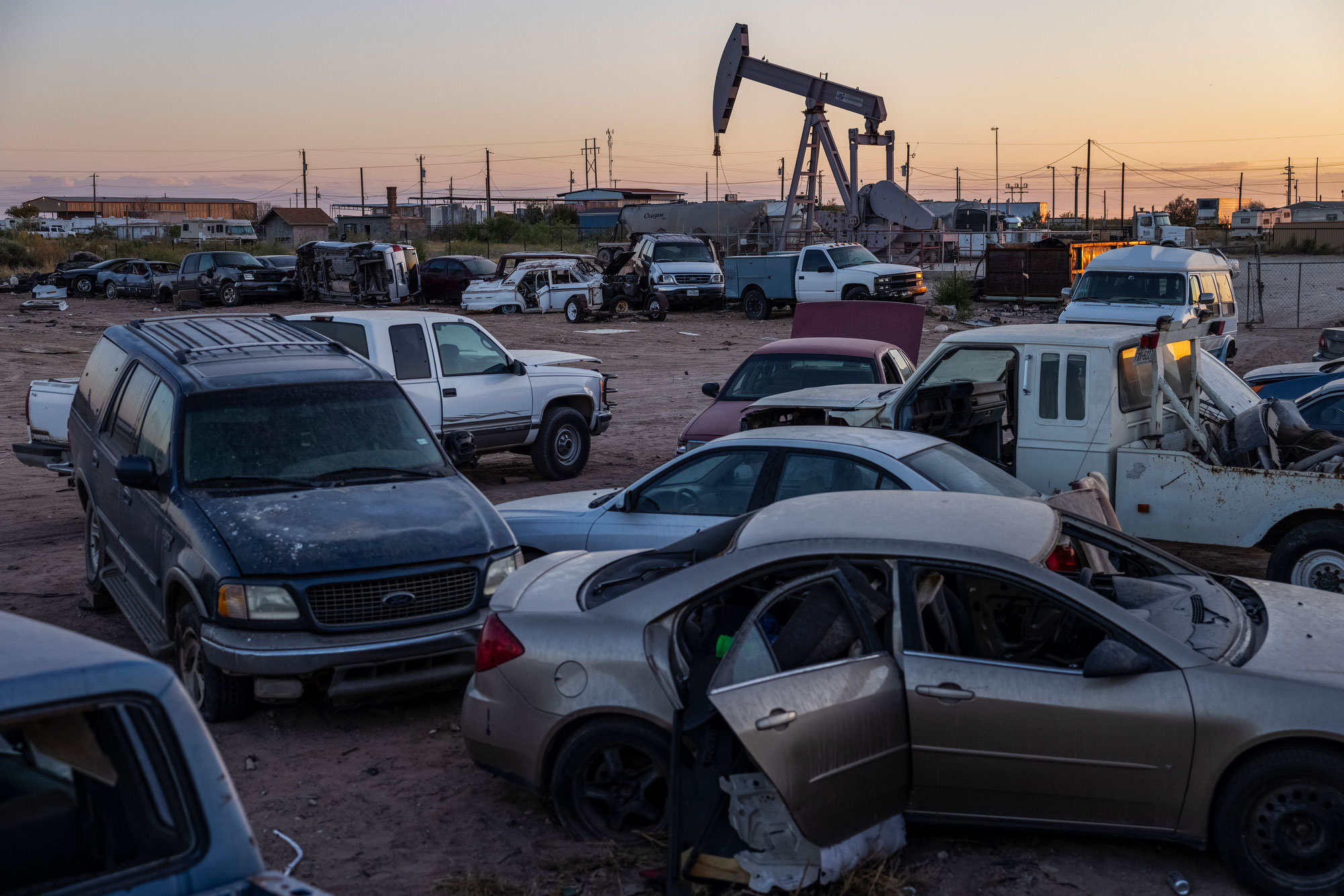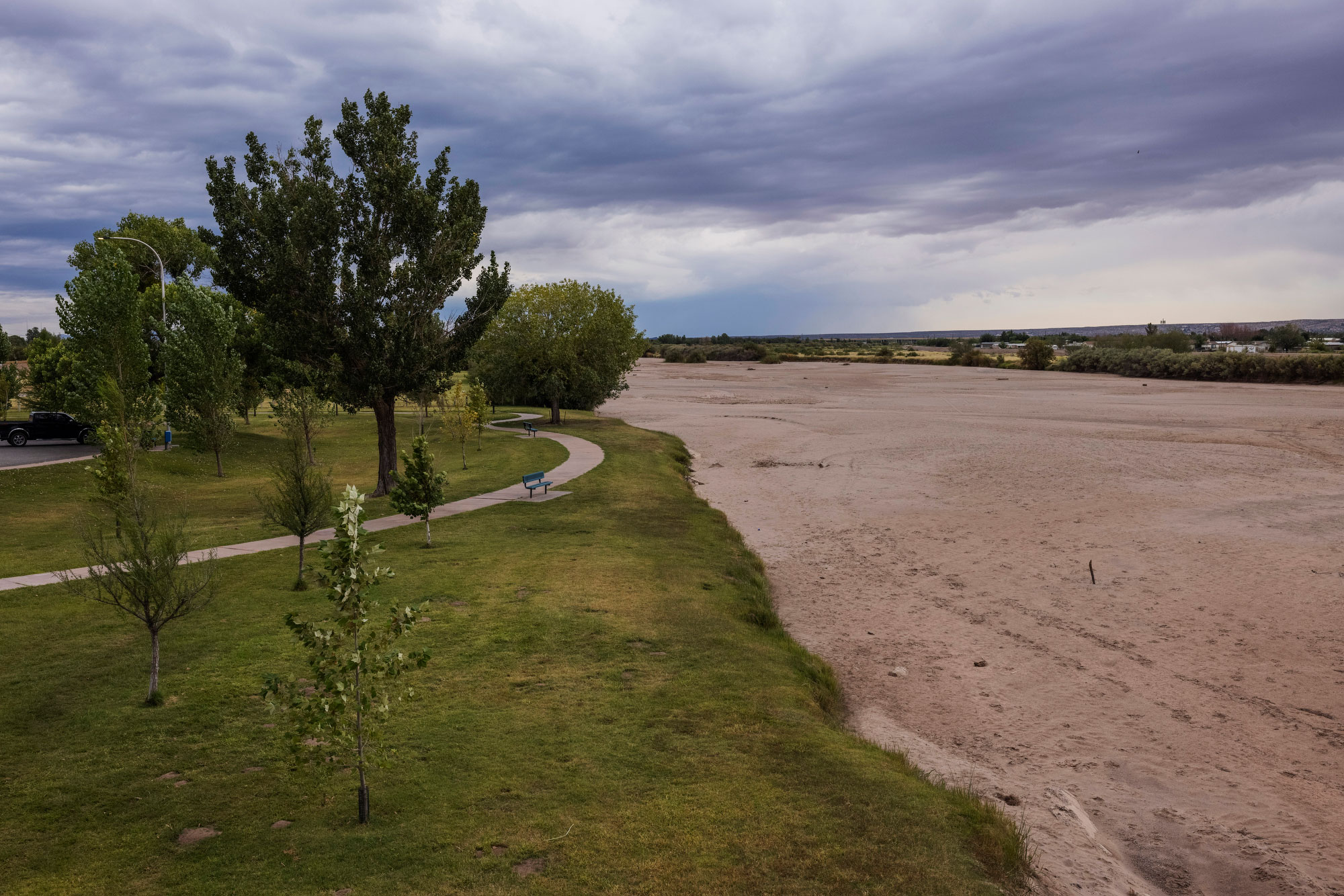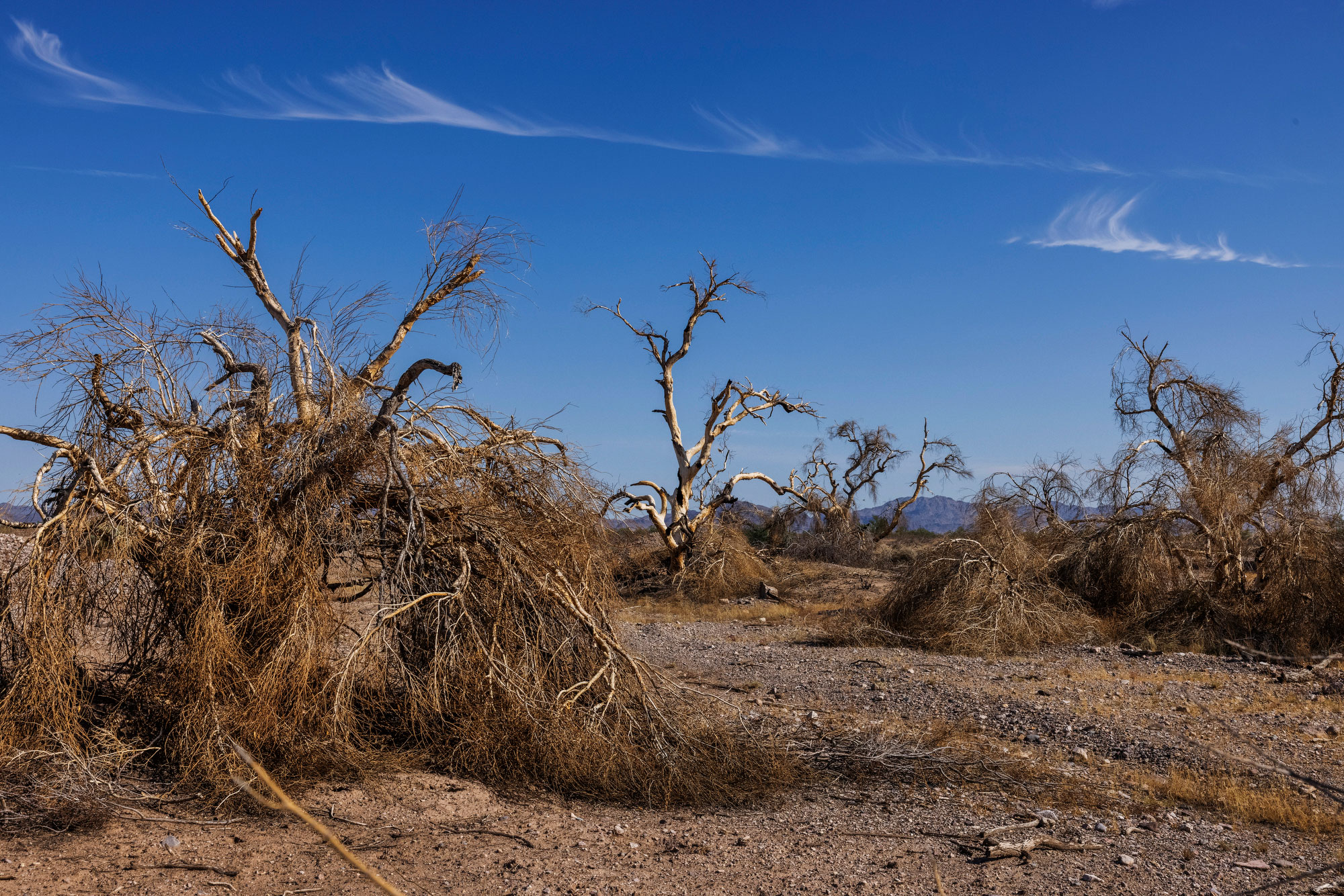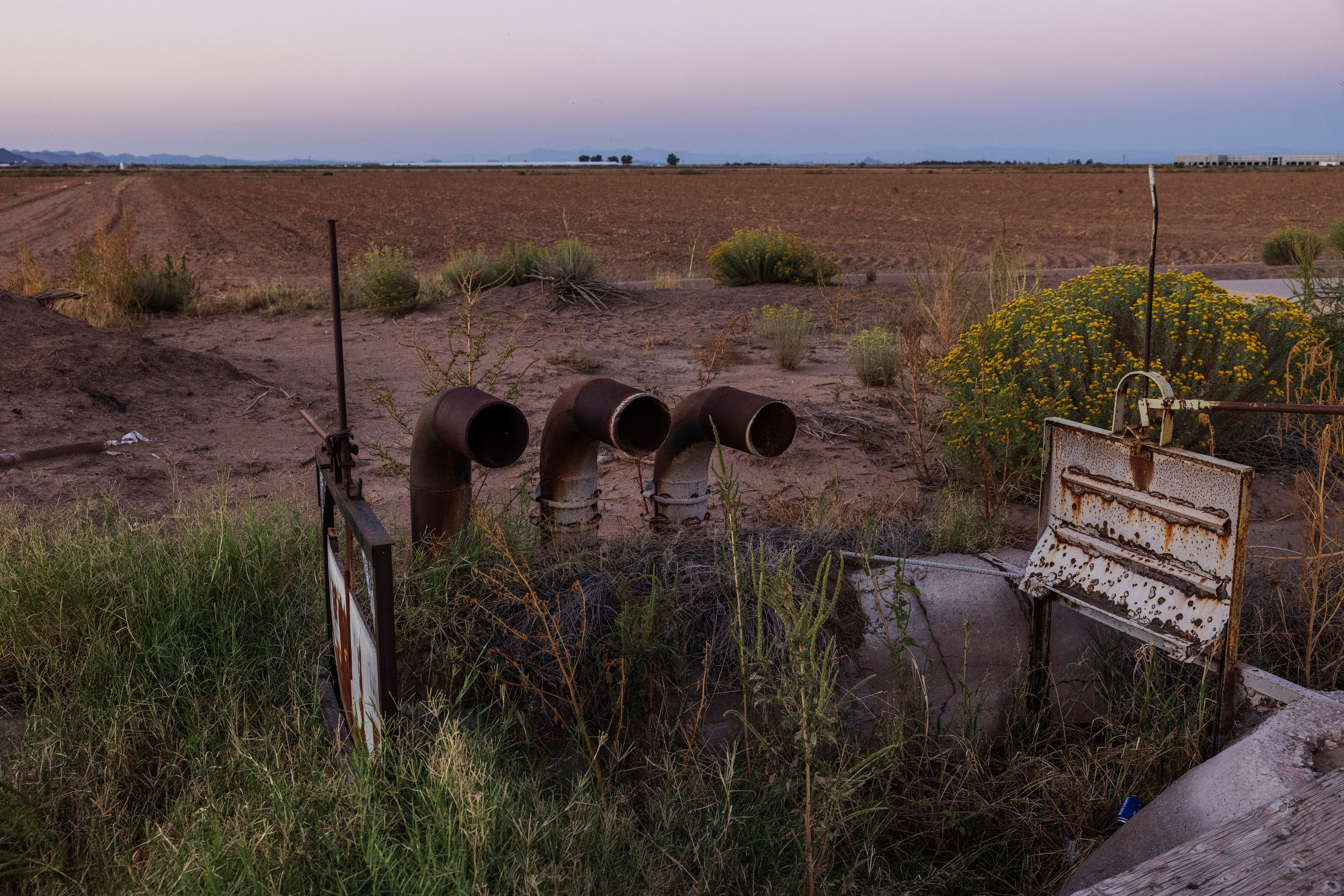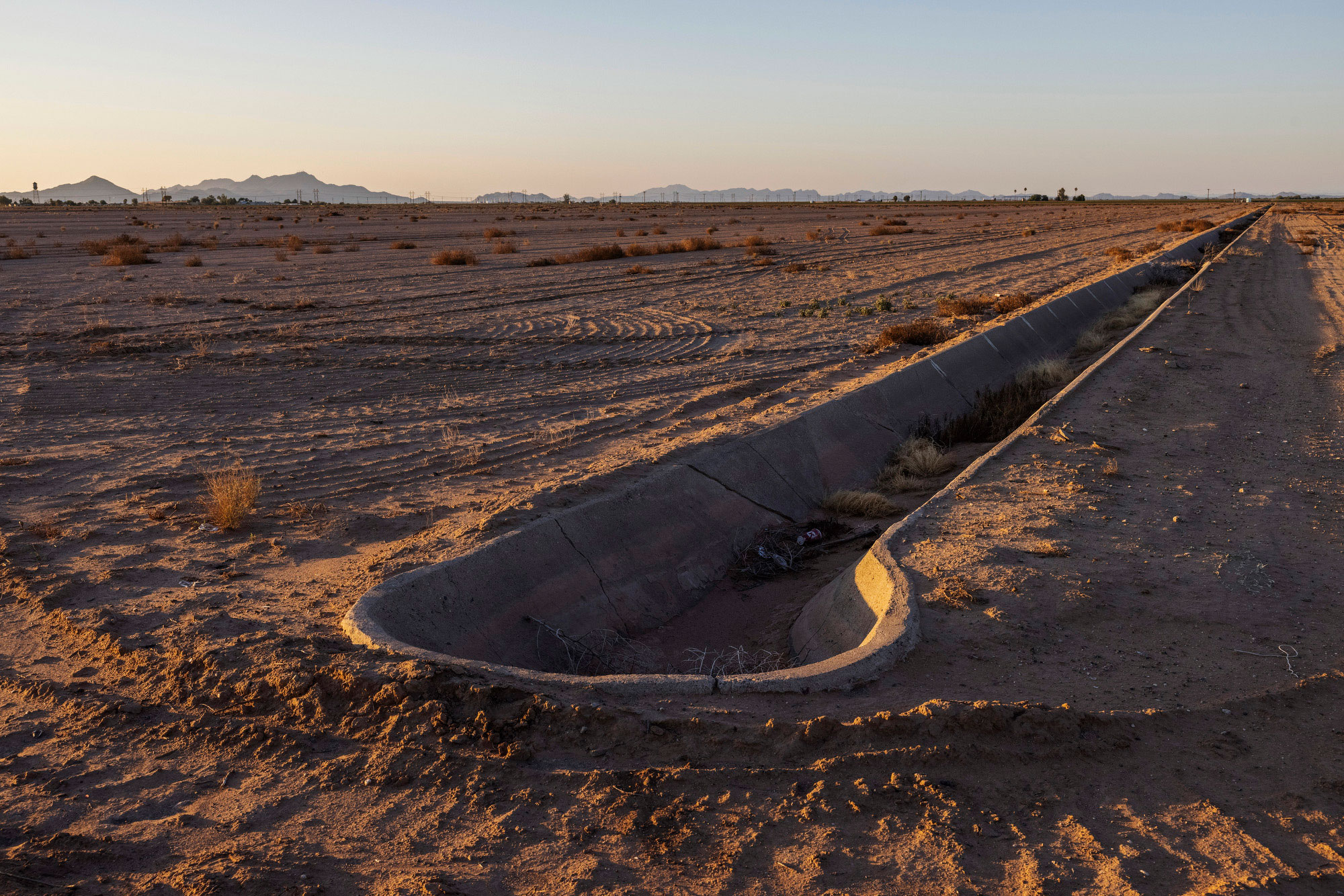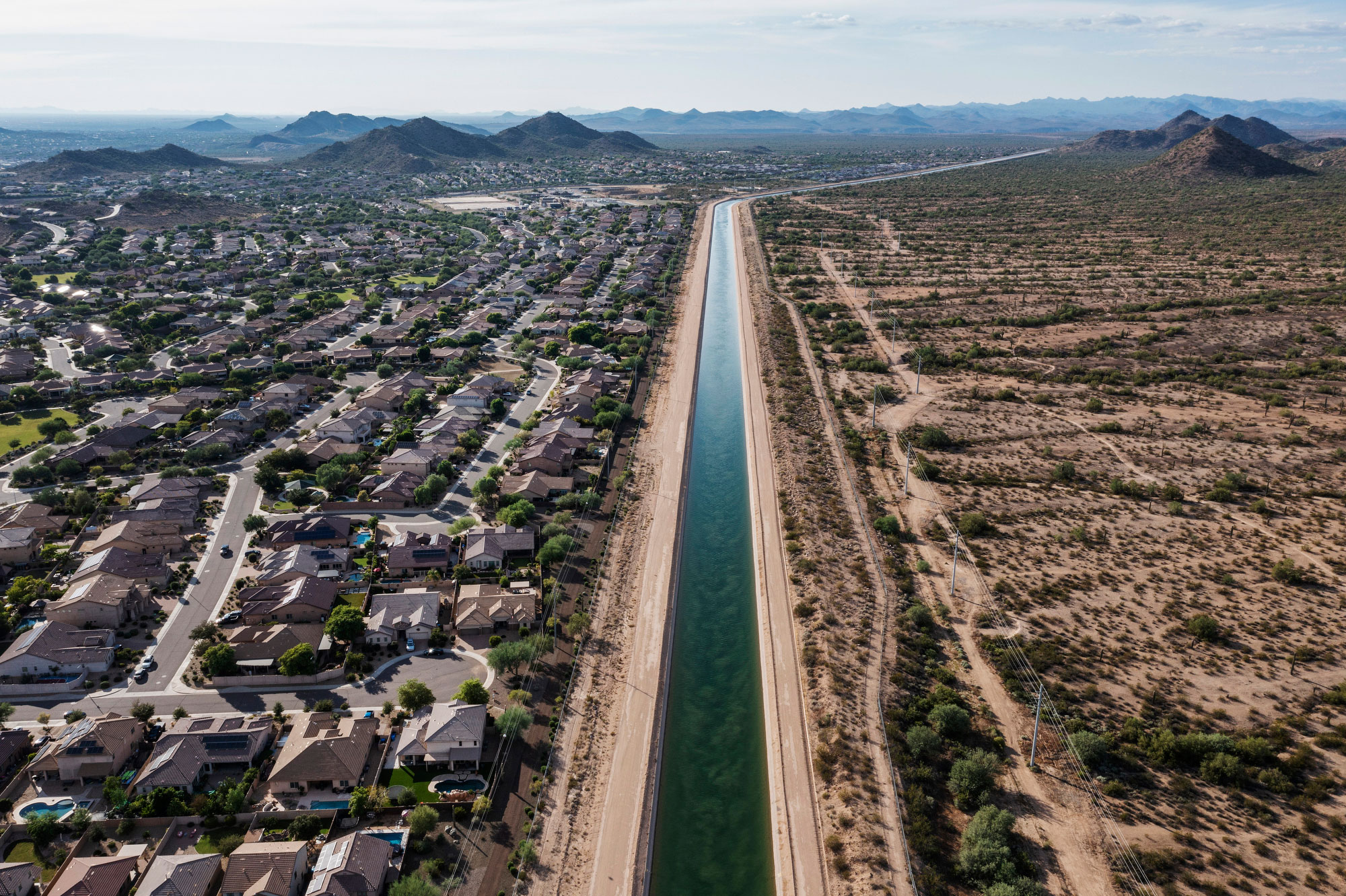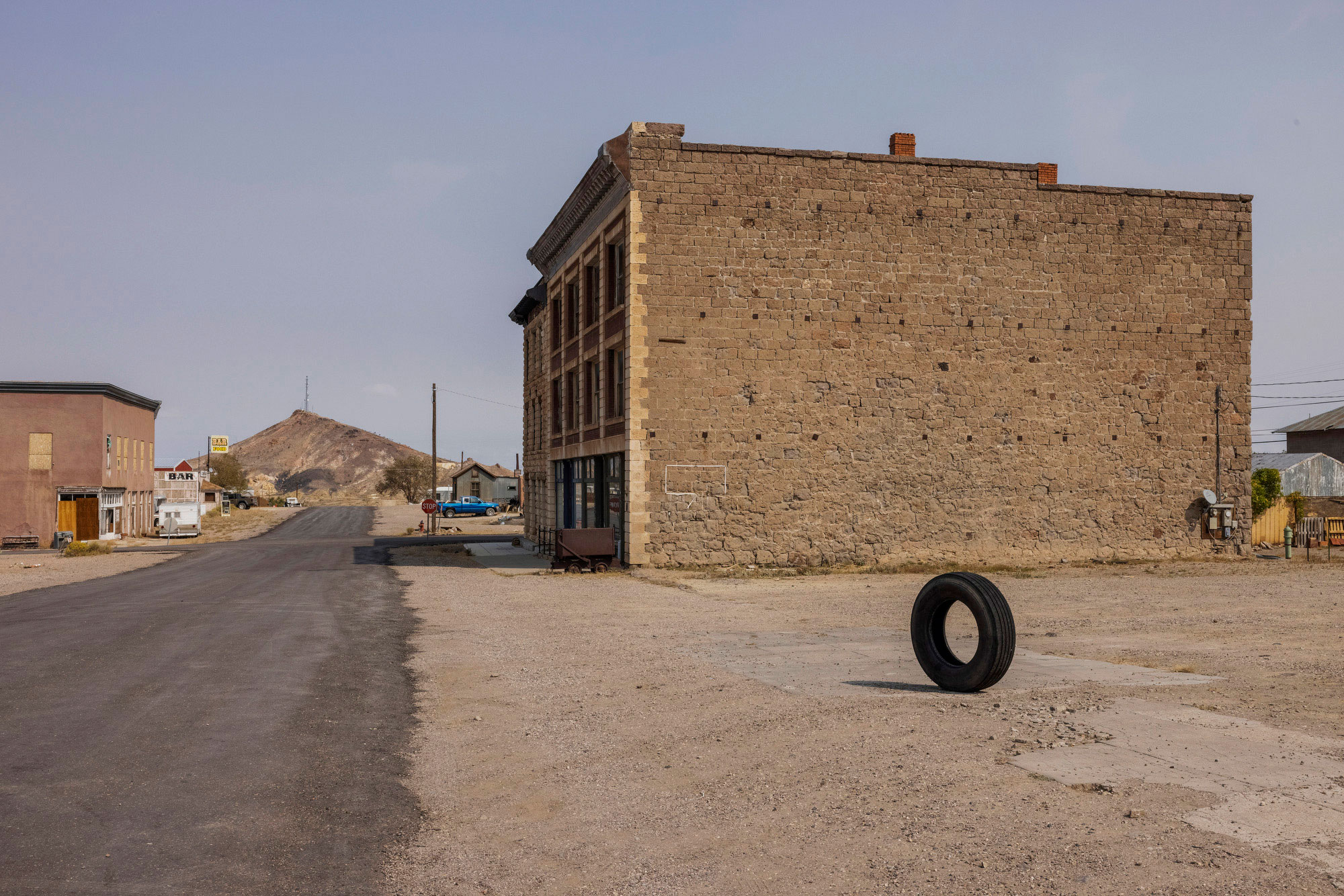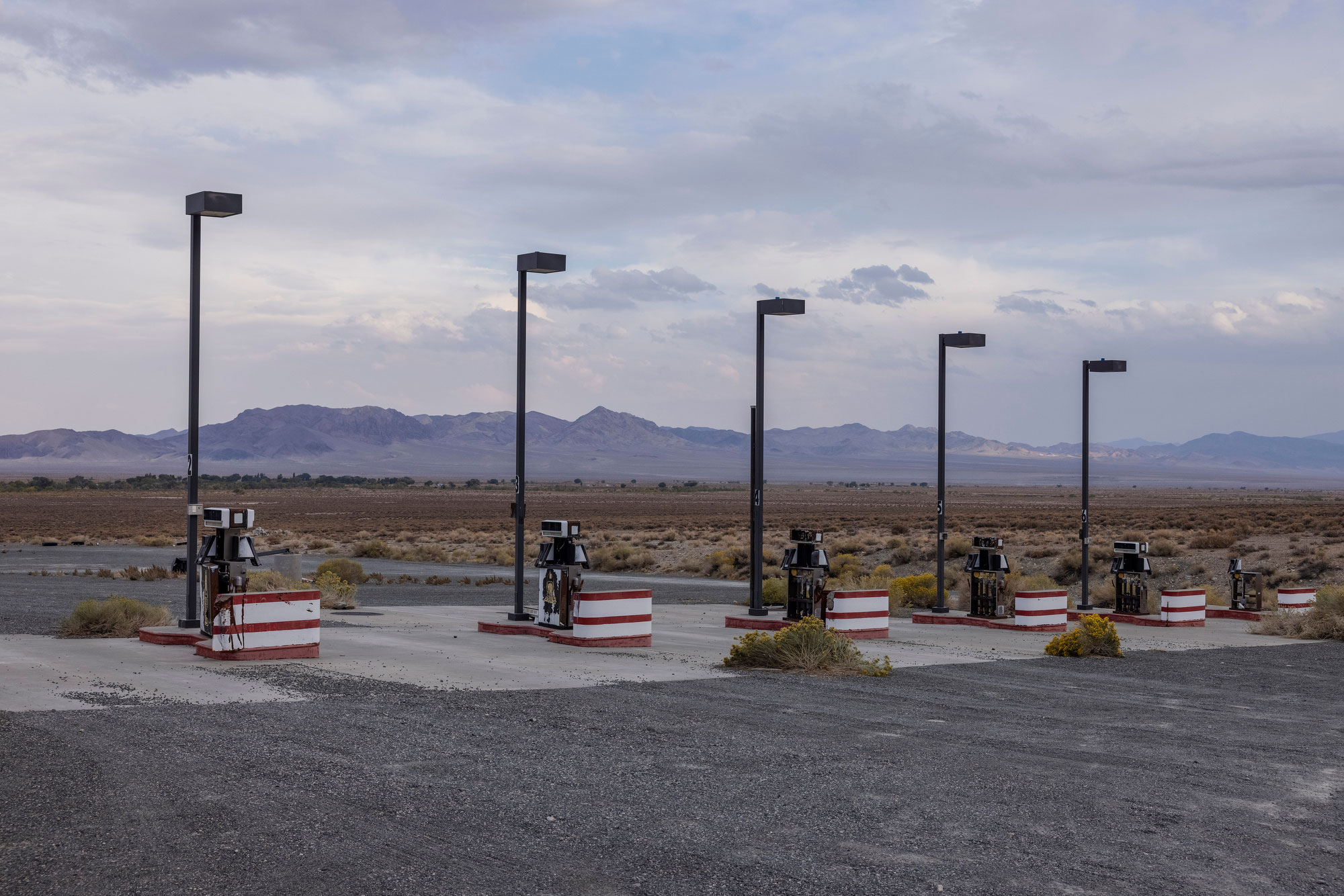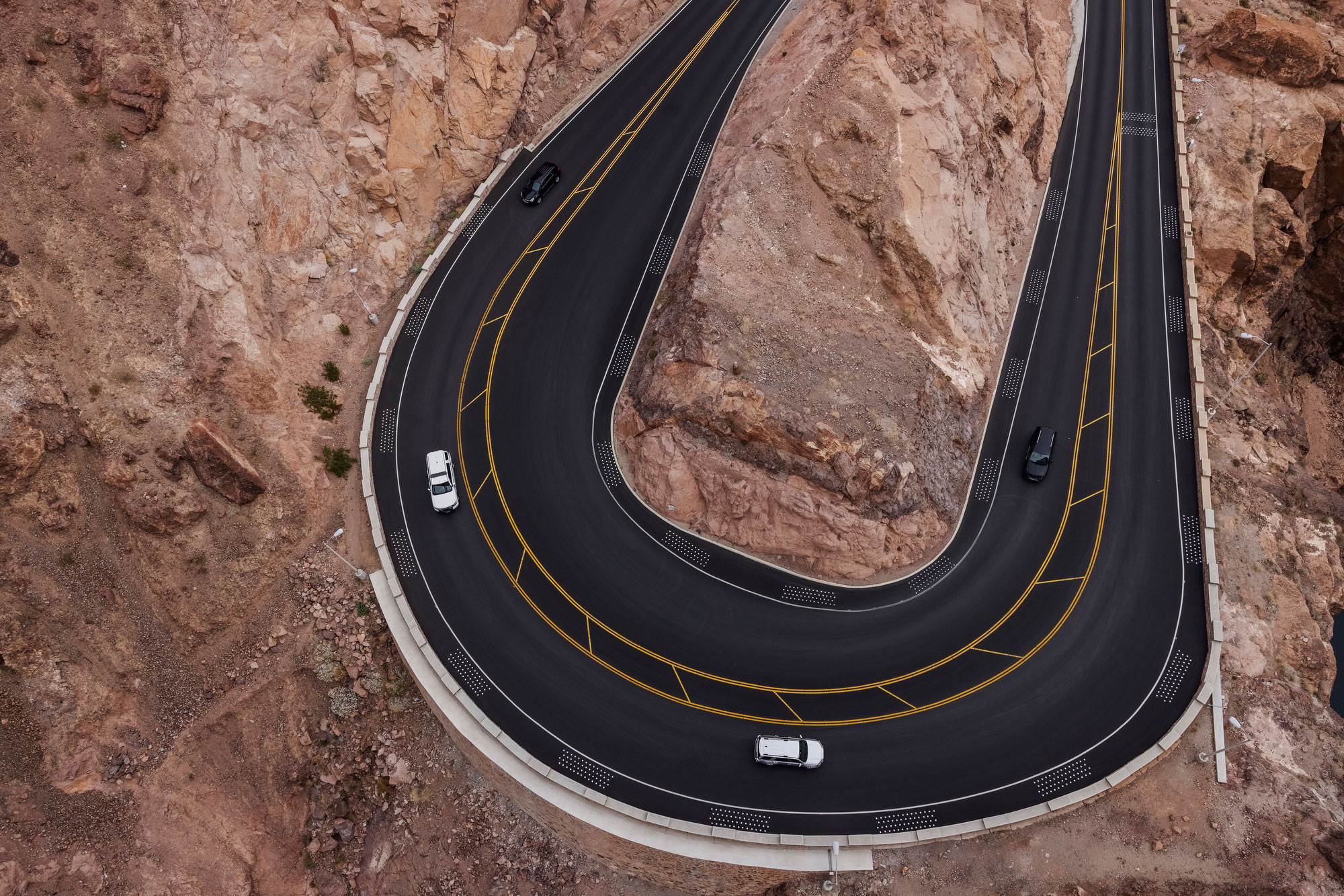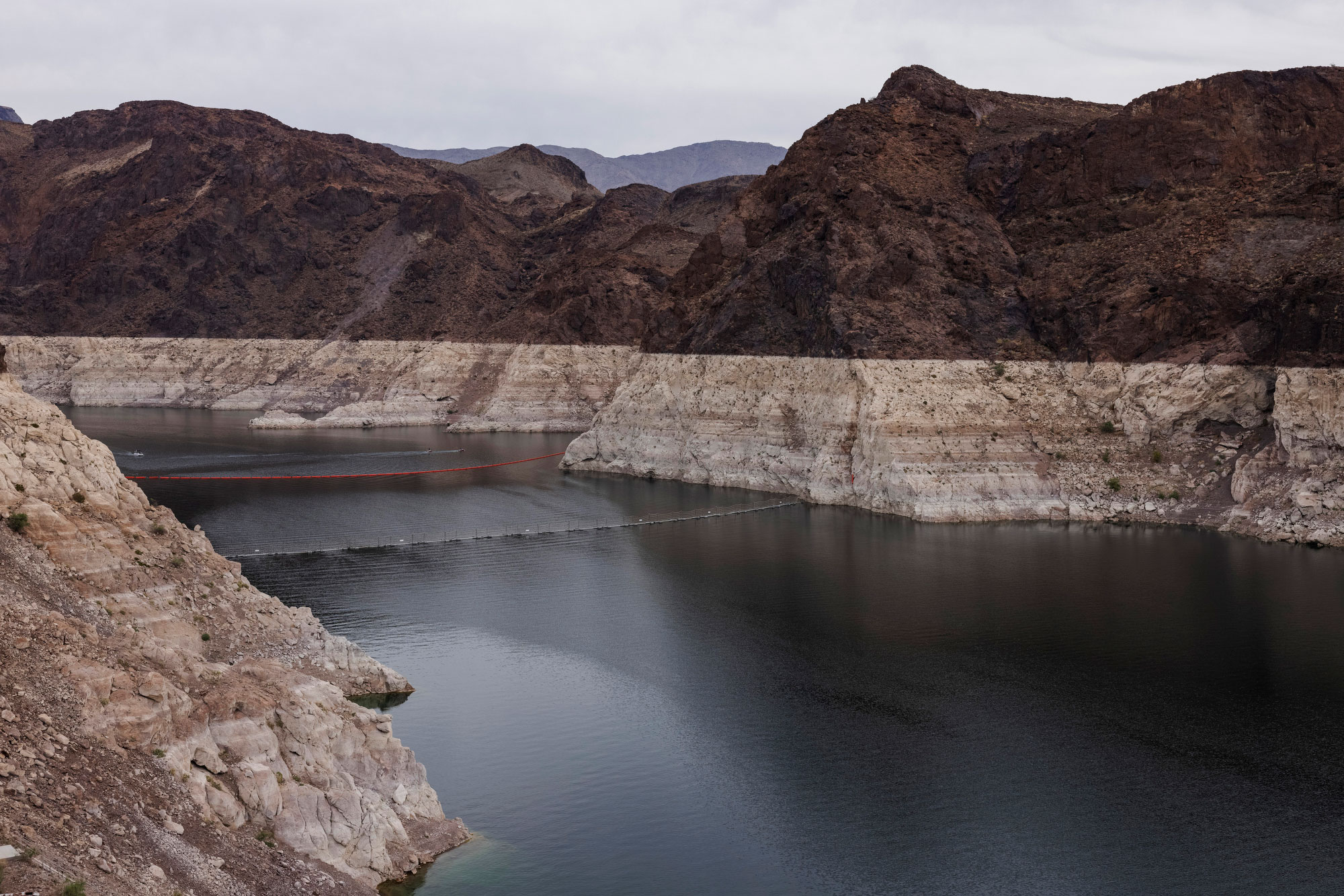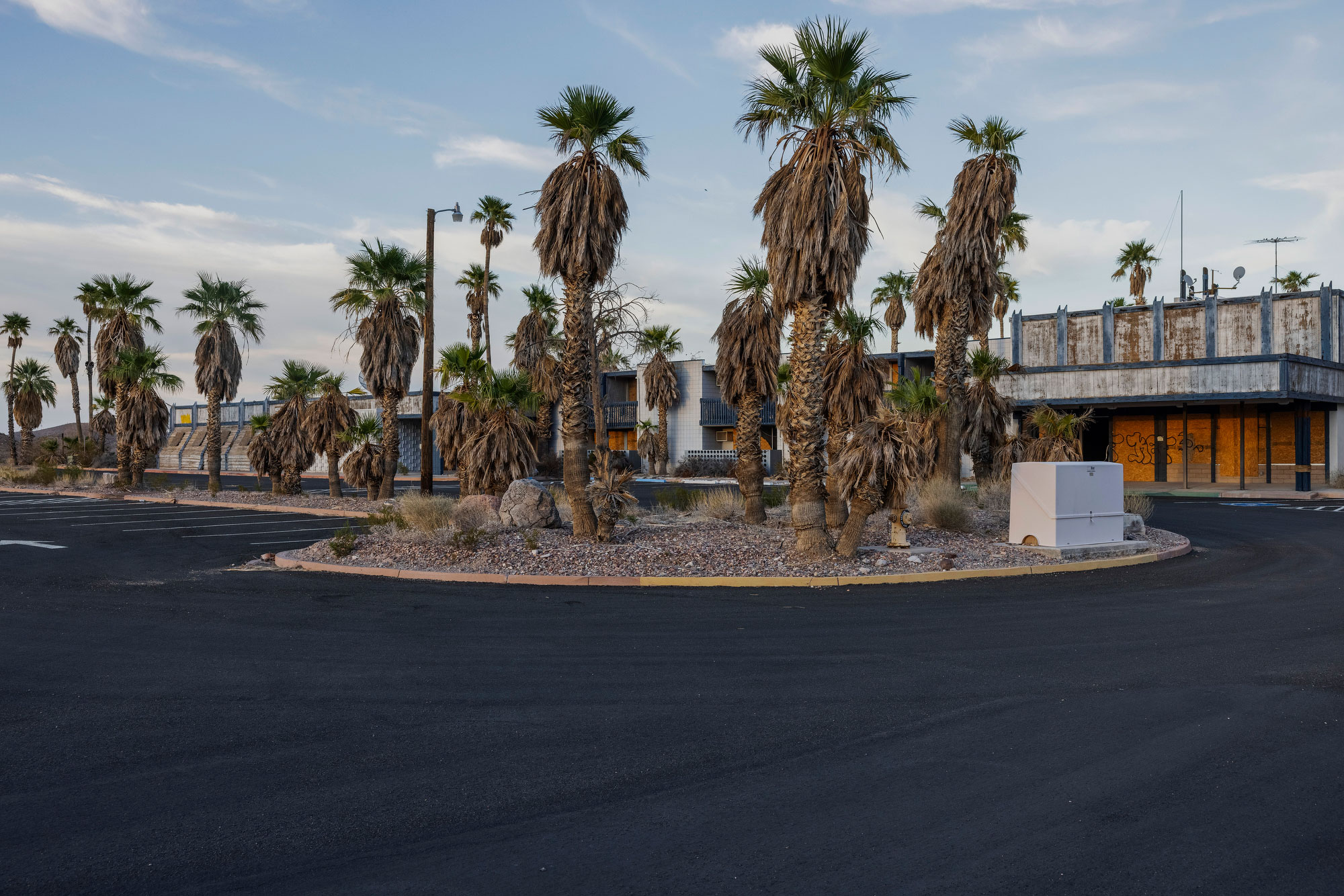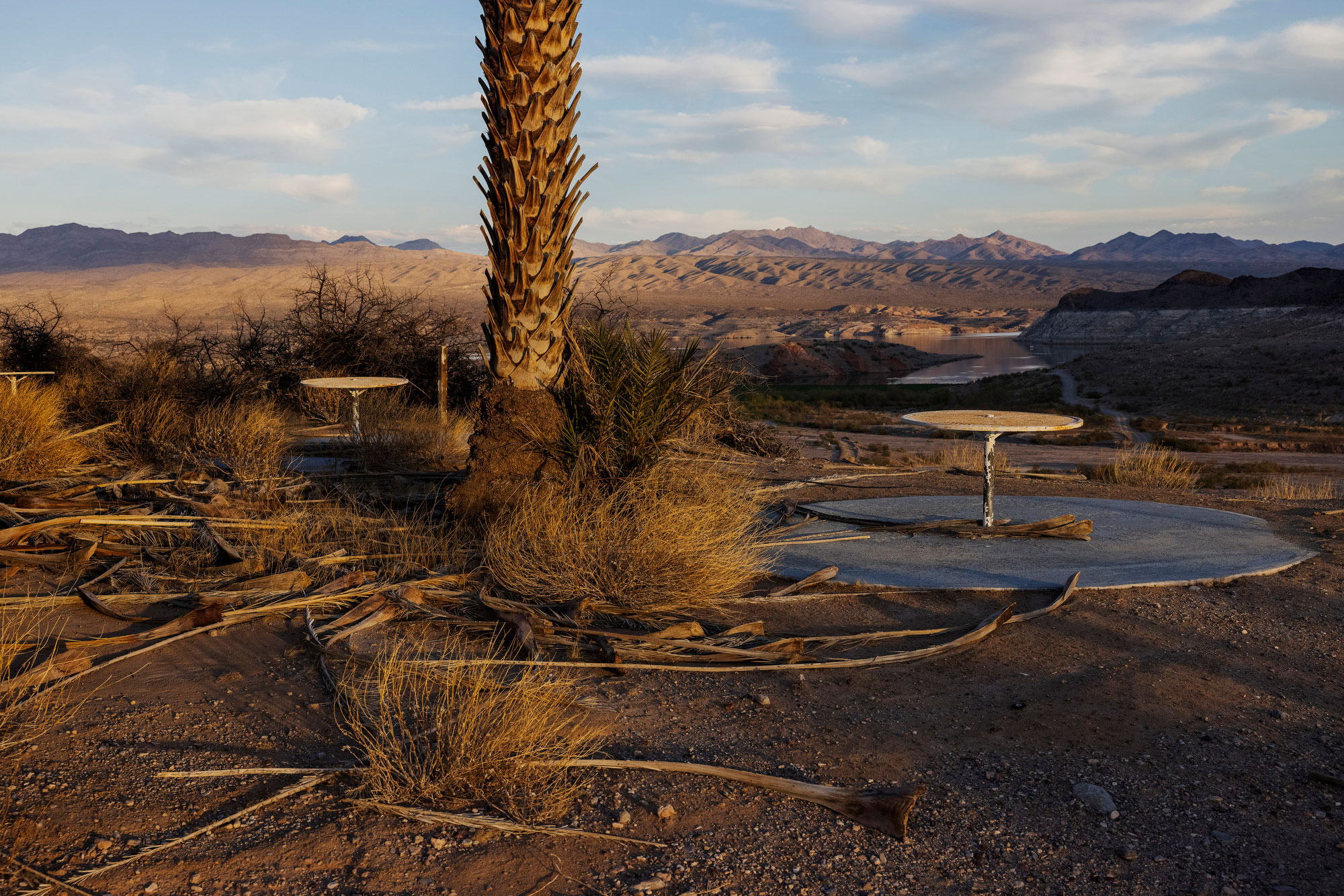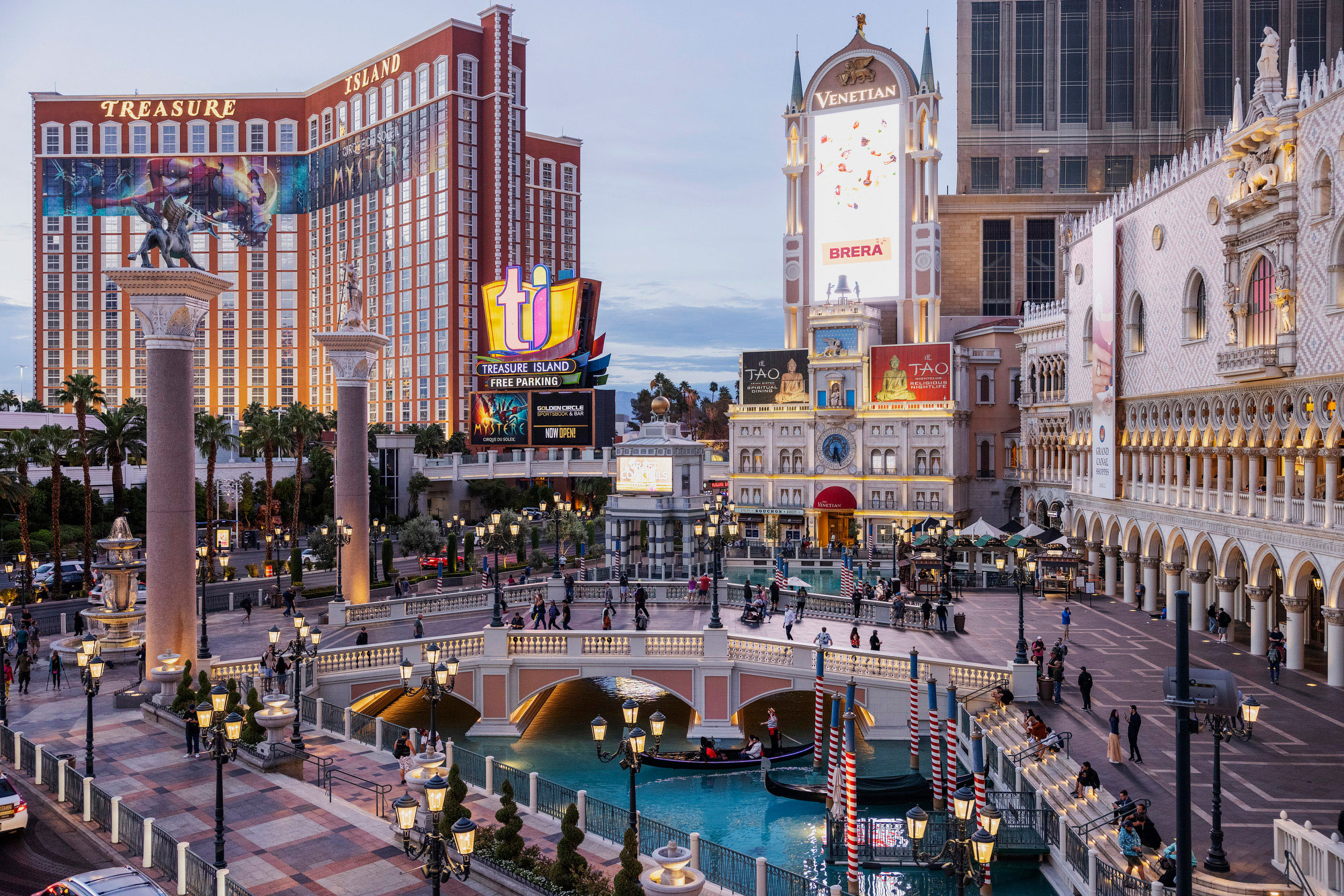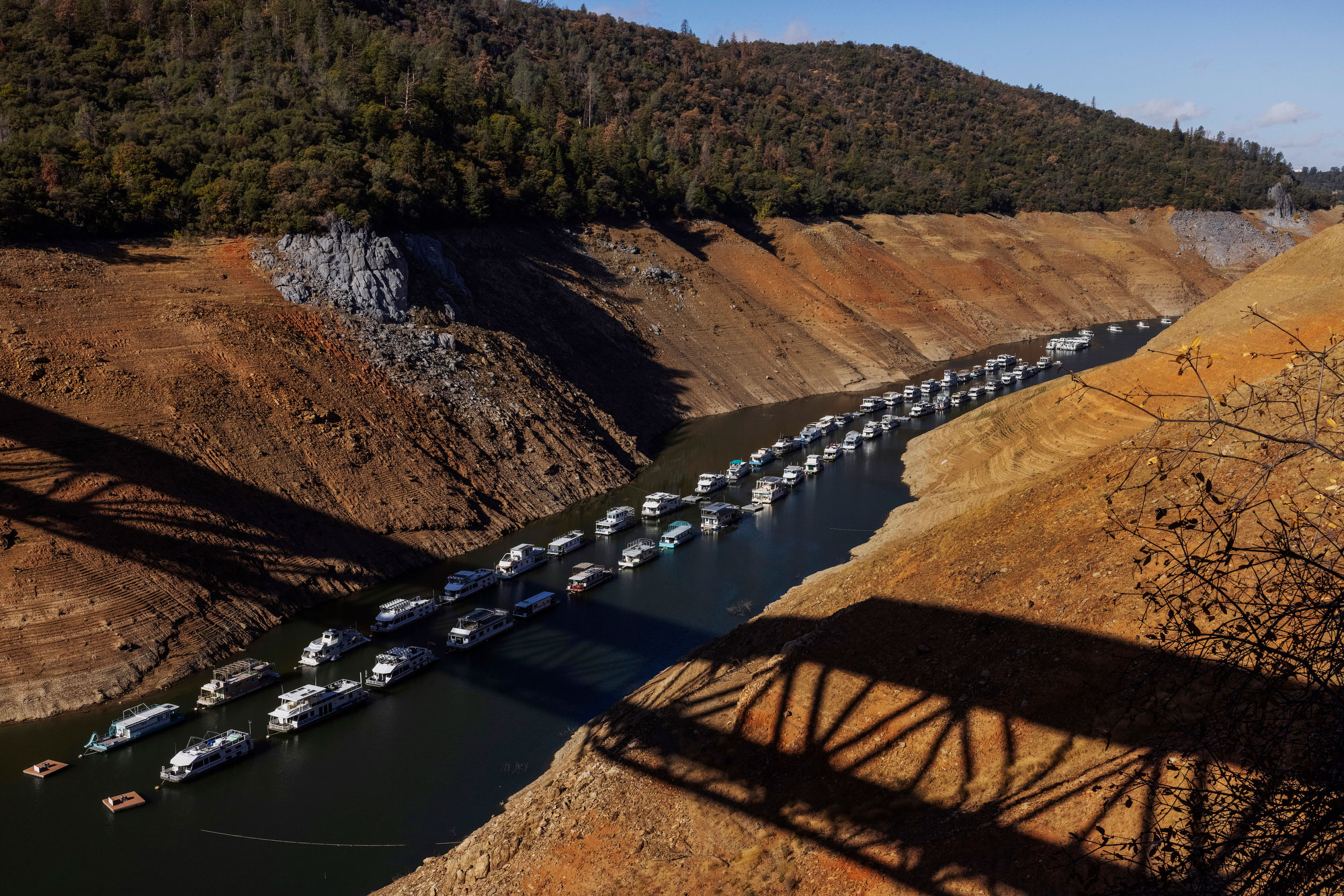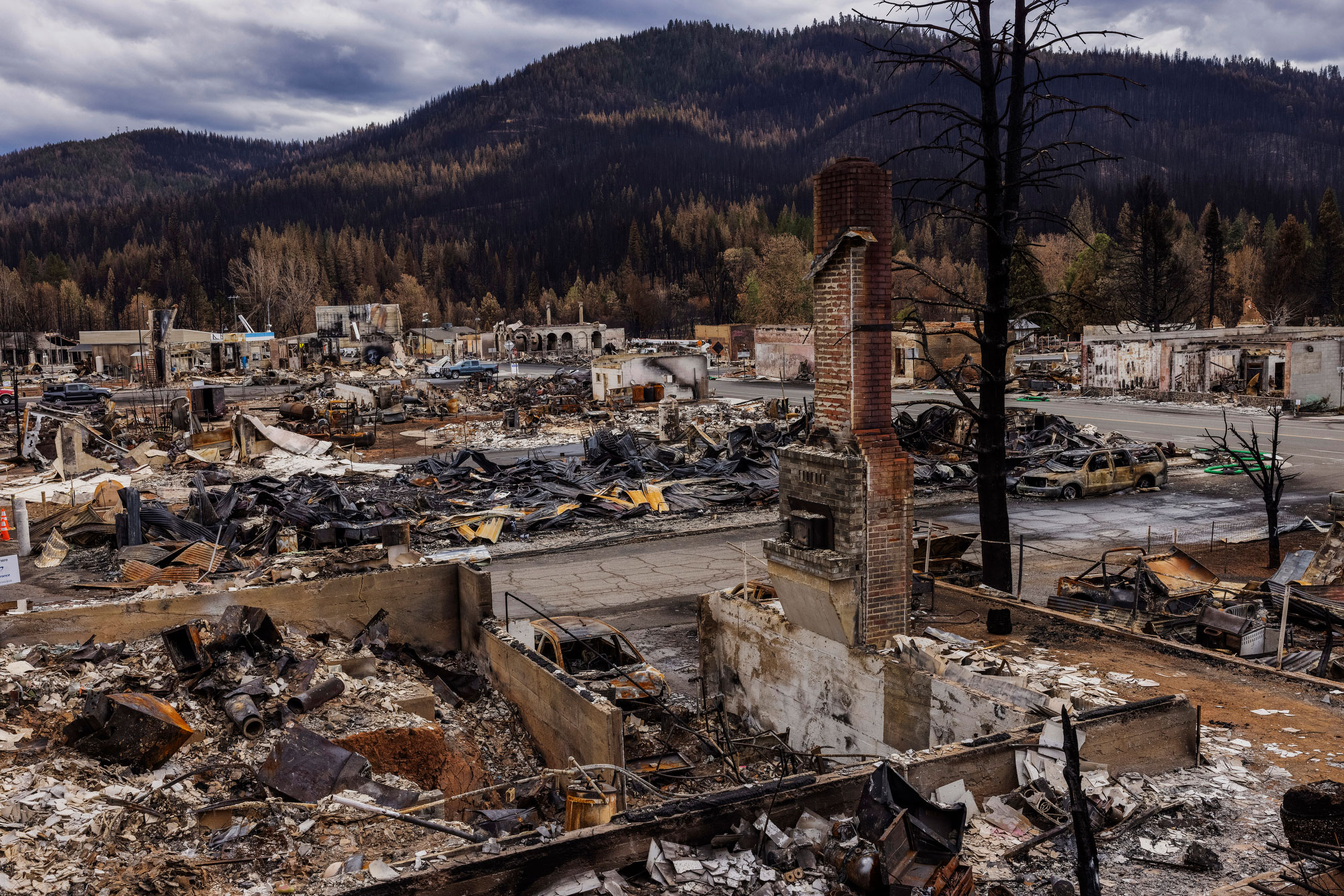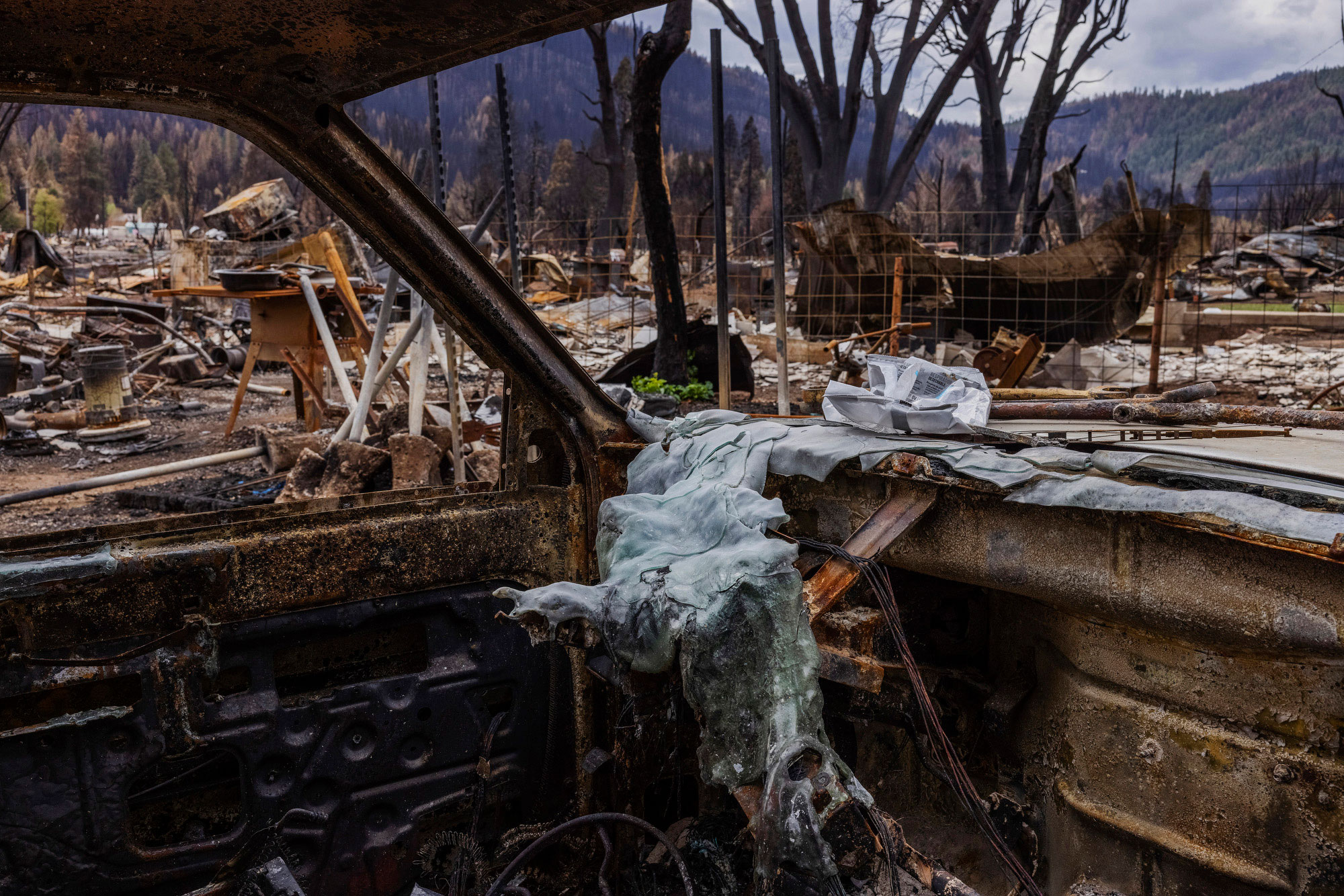Climate Crisis in USA
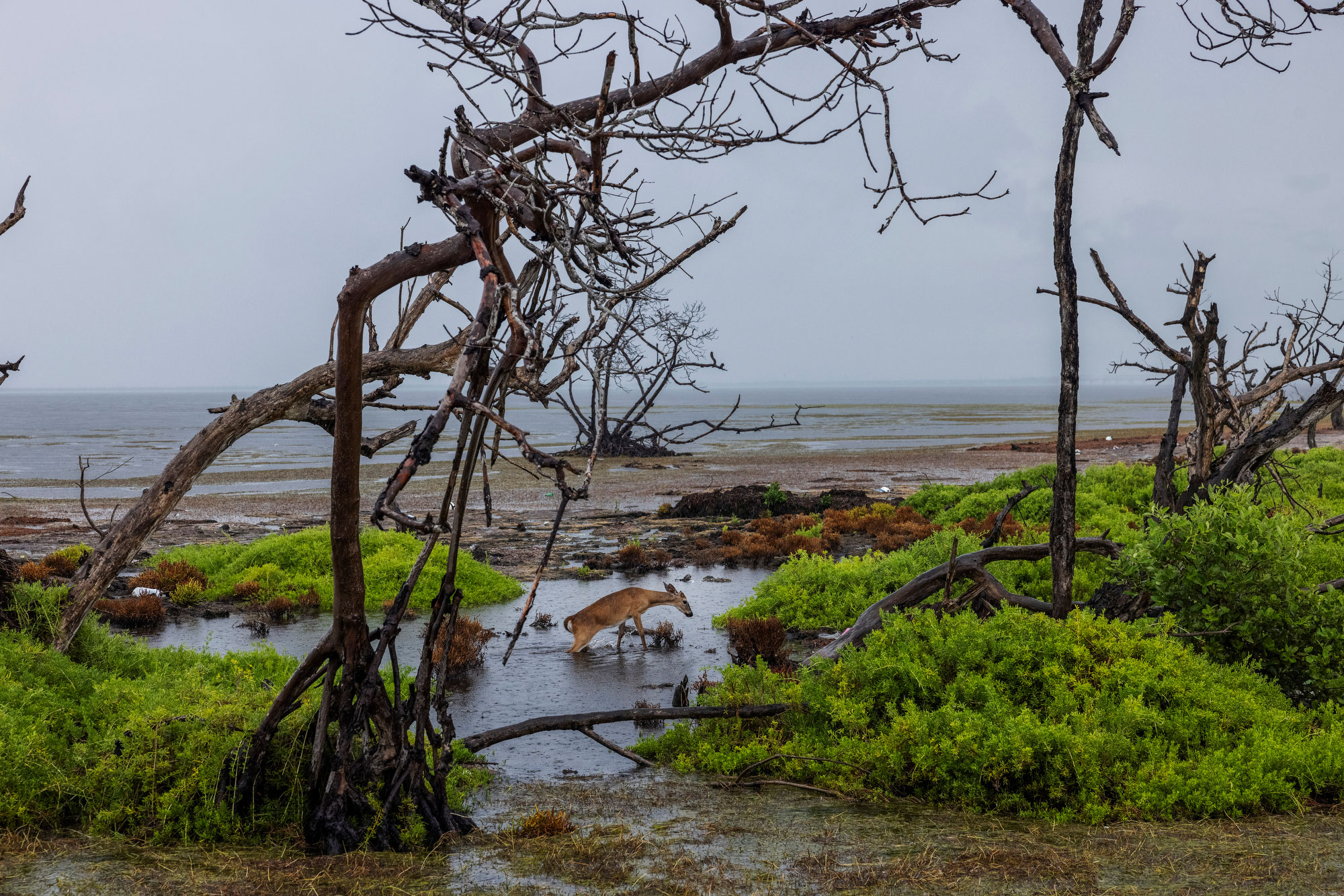
Lalo de Almeida spent 21 days travelling across parts of the United States that have been worst affected by extreme weather phenomena and natural disasters caused by global climate change. He photographed the inundated plains of Louisiana and Florida following Hurricane Ida which swept over the region in August 2021. In Texas he documented the state’s efforts to relieve the state’s overburdened energy grid with the installation of wind turbines and solar farms while in Arizona and Nevada, two states that have been affected by long terms droughts for years, he witnessed the effects of severe water shortage. The fires that have been sweeping across California periodically over the past years, in turn, have left a path of destruction and devastation on a massive scale.
Over a distance of almost 11,000 kilometers, the devastating effects of the various environmental phenomena affecting the country more and more frequently become frighteningly clear. Amongst the population, however, there is a general lack of awareness of the existential threat posed by climate change.
Originally Lalo planned to document people’s lives and how they are being affected by repeated natural disasters. What he found, however, was an empty, abandoned land; a land scorched, inundated and depopulated by fires, floods and hurricanes. A country seemingly at odds with the American way of life. His images, therefore, are largely devoid of people, instead meditating on the devastated landscapes that human activity, and the changing climate it has caused, has left behind.
The climate crisis has irreversibly transformed the US. Almost 35 million people – more than 1 in 10 inhabitants – already live in rapidly heating parts of the country.
And the situation is only set to get worse. If carbon emissions continue to rise at current rates, half of America’s population will be living in regions that are too hot and dry for sustainable human existence. Many more millions will find themselves stuck in places that are considered inhospitable.
